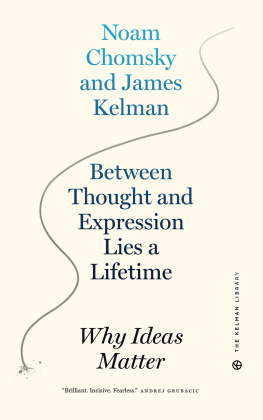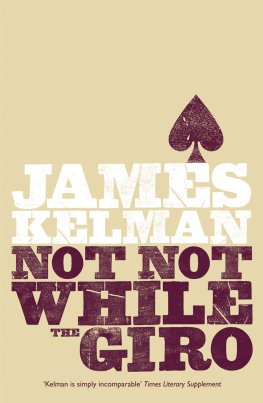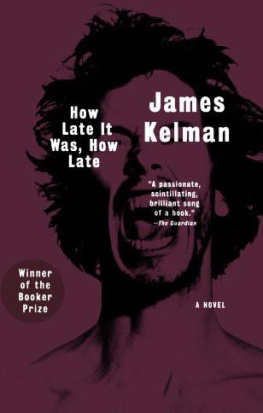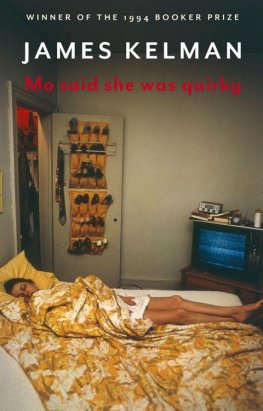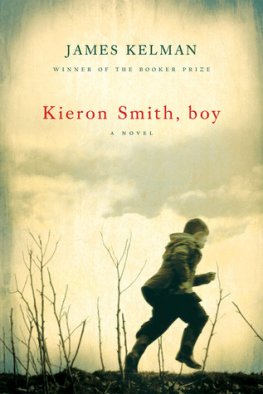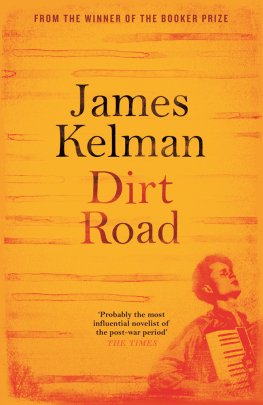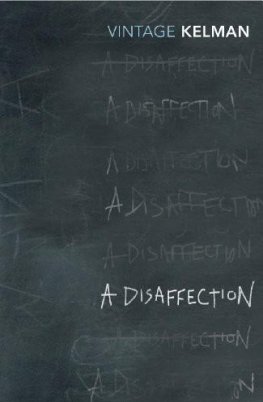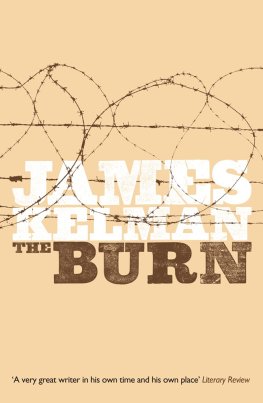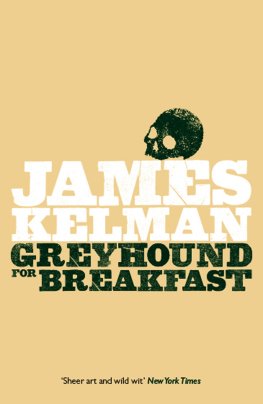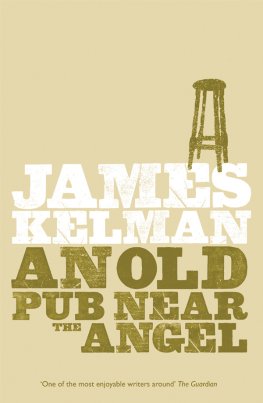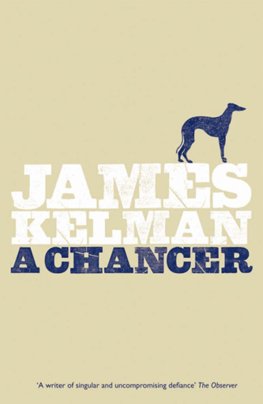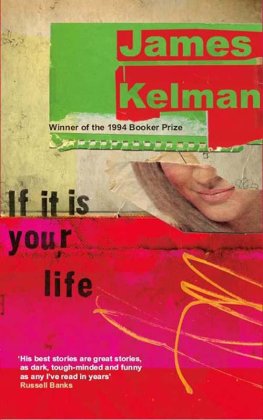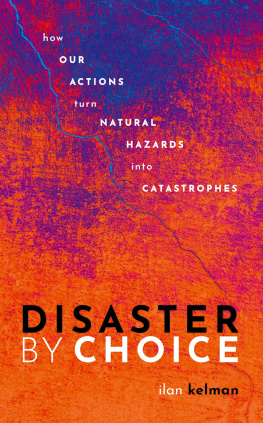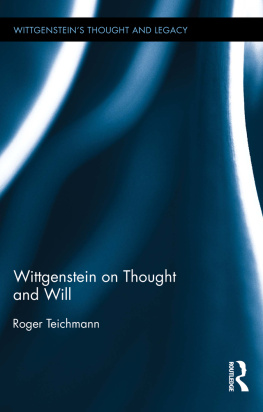The real reason Kelman, despite his stature and reputation, remains something of a literary outsider is not, I suspect, so much that great, radical Modernist writers arent supposed to come from working-class Glasgow, as that great, radical Modernist writers are supposed to be dead. Dead and wrapped up in a Penguin Classic: thats when its safe to regret that their work was underappreciated or misunderstood (or how little they were paid) in their lifetimes. You can write what you like about Beckett or Kafka and know theyre not going to come round and tell you youre talking nonsense or confound your expectations with a new work. Kelman is still alive, still writing great books, climbing.
James Meek, London Review of Books
A true original. A real artist. Its now very difficult to see which of his peers can seriously be ranked alongside Kelman without ironic eyebrows being raised.
Irvine Welsh, Guardian
Probably the most influential novelist of the post-war period.
The Times
Kelman has the knack, maybe more than anyone since Joyce, of fixing in his writing the lyricism of ordinary peoples speech. Pure aesthete, undaunted democratsomehow Kelman manages to reconcile his two halves.
Esquire (London)
Kelman has always been a true and honest writer, which is why he is one of the fairly few who really matter.
Scotsman
In ancient Greek philosophy, kairos signifies the right time or the moment of transition. We believe that we live in such a transitional period. The most important task of social science in time of transformation is to transform itself into a force of liberation. Kairos, an editorial imprint of the Anthropology and Social Change department housed in the California Institute of Integral Studies, publishes groundbreaking works in critical social sciences, including anthropology, sociology, geography, theory of education, political ecology, political theory, and history.
Series editor: Andrej Grubai
Recent and featured Kairos books:
Mutual Aid: An Illuminated Factor of Evolution by Peter Kropotkin, illustrated by N.O. Bonzo
Asylum for Sale: Profit and Protest in the Migration Industry edited by Siobhn McGuirk and Adrienne Pine
Building Free Life: Dialogues with calan edited by International Initiative
The Art of Freedom: A Brief History of the Kurdish Liberation Struggle by Havin Guneser
The Sociology of Freedom: Manifesto of the Democratic Civilization, Volume III by Abdullah calan
Facebooking the Anthropocene in Raja Ampat by Bob Ostertag
In, Against, and Beyond Capitalism: The San Francisco Lectures by John Holloway
Re-enchanting the World: Feminism and the Politics of the Commons by Silvia Federici
Practical Utopia: Strategies for a Desirable Society by Michael Albert
Autonomy Is in Our Hearts: Zapatista Autonomous Government through the Lens of the Tsotsil Language by Dylan Eldredge Fitzwater
For more information visit www.pmpress.org/blog/kairos/
Between Thought and Expression Lies a Lifetime
Why Ideas Matter
Noam Chomsky and James Kelman
Between Thought and Expression Lies a Lifetime: Why Ideas Matter
2021 the respective authors
This edition 2021 PM Press
All rights reserved. Except for brief quotations in critical publications or reviews, no part of this book may be reproduced, used, or stored in any information retrieval system, or transmitted in any form or by any means, electronic, mechanical, photocopying, recording, or otherwise in any manner without prior written permission from the publisher.
ISBN: 9781629638805 (paperback)
ISBN: 9781629638867 (hardcover)
ISBN: 9781629639000 (ebook)
Library of Congress Control Number: 2020952228
Cover by Drohan DiSanto
Interior design by briandesign
10 9 8 7 6 5 4 3 2 1
PM Press
PO Box 23912
Oakland, CA 94623
www.pmpress.org
Printed in the USA.
Acknowledgments
Thanks to Gus John and the George E. Davie Estate for their generosity in permitting the use of their work, and to the others whose correspondence is included. All proceeds from the Scottish end of the production go towards the Spirit of Revolt archive.
For all those volunteers, participants, and
audience members who took part in the
Self-Determination & Power event, Govan, 1990
Contents
James Kelman
James Kelman
James Kelman
Noam Chomsky
James Kelman
Noam Chomsky
George E. Davie
Professor Gus John
Noam Chomsky
James Kelman
Introduction
James Kelman
My correspondence with Noam Chomsky began earlier than documented here. There was the first letter I wrote him, and there may have been a second. I dont have these. This was early 1988, and I was working on typewriter and rarely kept copies of letters. I had been commissioned for a review of The Chomsky Reader by Peter Kravitz, then editor of Edinburgh Review.* The review just got longer and longer as the ideas expanded, and Peter was happy with that. Space was not a consideration. Later he heard through friends that Chomsky was visiting London to give a public lecture. We wanted to invite him north to give another in Glasgow and attended the lecture at Battersea Town Hall, hoping to make the invitation in person.
John Pilger attended the same meeting and recalls the incident when (Chomsky) defended the right of a neo-fascist to heckle him. I remember this too, and very clearly. The man had travelled from France to attend the lecture, expressly to confront Chomsky. He was so close to the platform had he fired a gun he could hardly have missed. The significance of that stayed with me. During his subsequent visit to Glasgow, I mentioned it to Chomsky. He shrugged. It was nothing new and there was little he could do about it.
When we issued the original invitation to him, the idea was that he visit Glasgow to deliver a lecture. Nothing else was planned. When he agreed to come that one lecture developed into what became the Self-Determination & Power event, held over two days. This book is not a record of that, nor of its organization, and I make no attempt to present either, although they are a part of it.
The value of debate and exchanging points of view was in evidence during the organization. People were ignorant of the work of George Davie and could not fathom why he should have been sharing the second-day platform with Noam Chomsky. A few were for, and a few were against. Others knew nothing of any of it. Readers of the Edinburgh Review knew more than most. Peter Kravitz was one of Davies graduate students and had been publishing his essays there. He was also commissioning editor at Polygon Books, publishing wing of Edinburgh University Students Union. The students involved were responsible for galvanizing contemporary Scottish literature during the 1980s. They were also responsible for bringing Davies work to the attention of the wider public.* In so doing, they were introducing to them the philosophical tradition of their own country.

